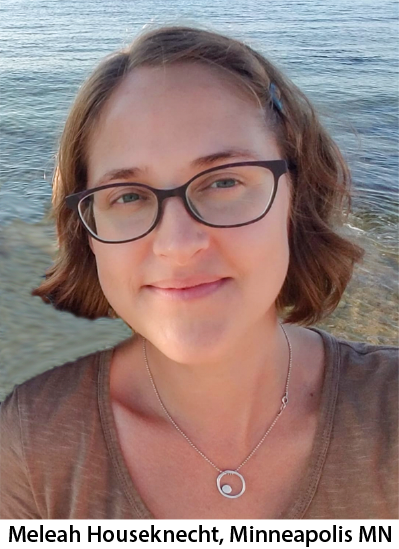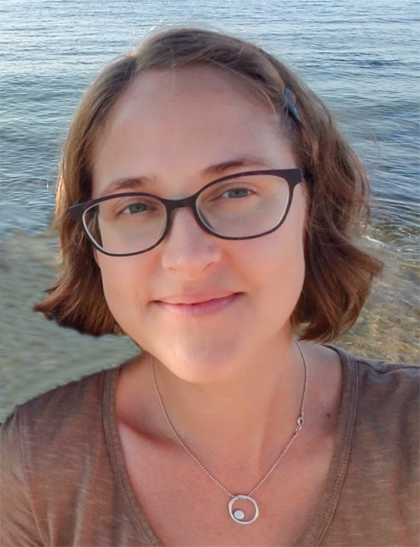I joined the Minneapolis Community Environmental Advisory Commission in 2012 as a part of an effort to diversify the commission and refocus it toward public health and community resilience. Another new member was Rochelle, a community activist from North Minneapolis, which has the highest poverty rates and largest concentrations of indigenous people and people of color, thanks to the city’s history of racially-restrictive covenants and redlining.
There was an immediate and painful culture clash. Many believed we should focus on the city’s compost education program and energy utility agreements. Rochelle asked that we demand action to prevent children from passing out from heat stroke in North Minneapolis schools without air conditioning.
Despite pursuing a career in the environmental field because of a calling to end environmental injustice, I struggled to reconcile our mandate as technical advisors with Rochelle’s demand to focus on impacts. We agreed on what was morally right, but our different life experiences led to different assumptions about spending our limited volunteer time and political capital. It was a matter of framing our priorities.
I began to feel that the environmental movement had gone astray.
For decades, we had worked on technical and incremental solutions as environmentalists, while environmental justice activists worked on separate issues, often operating under vastly different worldviews. I don’t think that it’s just semantics—something that can be fixed by sticking the word “justice” after the word “environmental.” As people of faith and conscience, we must ask why white liberal environmentalism has failed to advance a more loving or just world.
One key to mending this theological rift is in the space between our commitment to individual human worth and our responsibility to the interconnected whole. Rev. Dr. Sheri Prud’homme calls it “the dynamic tension between our Seventh and First Principles: ‘the interdependent web of all existence of which we are a part’ and ‘the inherent worth and dignity of every person.’”
The Seventh Principle – when understood as “the environmental principle” – has at times allowed us to see “environmental” work as separate from dismantling white supremacy and advancing racial and economic justice. For some of us, embracing an abstract sense of love for all of nature has been easier than grappling with the reality that we have benefited from and participated in systems of supremacy and oppression. Fully living out the First Principle presents a deeper challenge for us as a historically largely white and middle-class denomination. But it can also stretch us to a deeper understanding of what will be needed to create a just and sustainable world.
In her 2018 essay, “Ethical Implications of Environmental Justice,” Rev. Dr. Sophía Betancourt points out that “Environmental justice pushes back on the idea that all humanity can effectively be considered as one single element of the Earth community without first dismantling generation upon generation of injustice within human society.” She goes on to say, “Situating our environmental justice work at the intersection of our first and seventh Principles demands that we address the interconnected desecration and marginalization of oppressed peoples and nonhuman nature… We should not allow our fear or rightful sense of immense urgency to legitimize addressing centuries of environmental devastation in isolation from centuries of human oppression and despair.”
Rev. Betancourt’s words remind us that the systems of supremacy that allow children to swelter in overheated classrooms in North Minneapolis are an “environmental” concern worthy of our attention.
One sad truth of my years working in the field is that what we call “environmental justice communities” (or, in our more honest moments, “sacrifice zones”) are the product of waste systematically rolling downhill. These sacrifice zones will continue to exist as long as humanity lives on a steep gradient of wellbeing, and supremacy culture is treated as inevitable as gravity.
As long as there is someone or someplace whose life is treated as less important, there will be someone who is OK to poison or someplace that it is OK to destroy. The Seventh Principle warns that such damage will be felt by us all. It is our First Principle that denies the underlying logic that anyone can be sacrificed. We can “respect” something and still take, change, or even destroy it—we cannot deny that which is “inherent.”
This is why we need the Eighth Principle, which I am gratified that UUSJ adopted.
The Eighth Principle explicitly states that our spiritual wholeness is found in community with others and that such a community does not yet exist. We must deliberately dismantle oppressions from the inside out. Without naming that work in human relationships, it is easy to understand these principles in their most individualist form: an expression of our worth as a solitary creature connected loosely to all but intimately to none.
Once we no longer value and validate some humans over others, we can better show reverence and respect for all life. We will be forced to reckon with the impacts of our relentless consumption and production habits, which presume the creation of poisonous waste. When we respect the interdependent web of all existence by honoring every person’s inherent worth and dignity, we will live and love to the fullest meaning of our Unitarian Universalist faith.
 Meleah Houseknecht (she/her/hers) is a new UUSJ Trustee serving through July 2026. Meleah is also the founder and owner of Emergence Consulting, which provides added capacity to nonprofit clients through organizational development, project strategy and management, meeting and event design, facilitation, and coaching on inclusive stakeholder engagement to advance more just, and resilient environmental policy, planning, and decision-making. Most recently, she served as the director of policy and systems change for Environmental Initiative, where for nine years, she led the organization’s work to engage diverse stakeholder perspectives on behalf of state and local government and to build capacity in the environmental field to collaboratively address systemic and complex environmental problems through the lens of racial, cultural, and social equity.
Meleah Houseknecht (she/her/hers) is a new UUSJ Trustee serving through July 2026. Meleah is also the founder and owner of Emergence Consulting, which provides added capacity to nonprofit clients through organizational development, project strategy and management, meeting and event design, facilitation, and coaching on inclusive stakeholder engagement to advance more just, and resilient environmental policy, planning, and decision-making. Most recently, she served as the director of policy and systems change for Environmental Initiative, where for nine years, she led the organization’s work to engage diverse stakeholder perspectives on behalf of state and local government and to build capacity in the environmental field to collaboratively address systemic and complex environmental problems through the lens of racial, cultural, and social equity.


